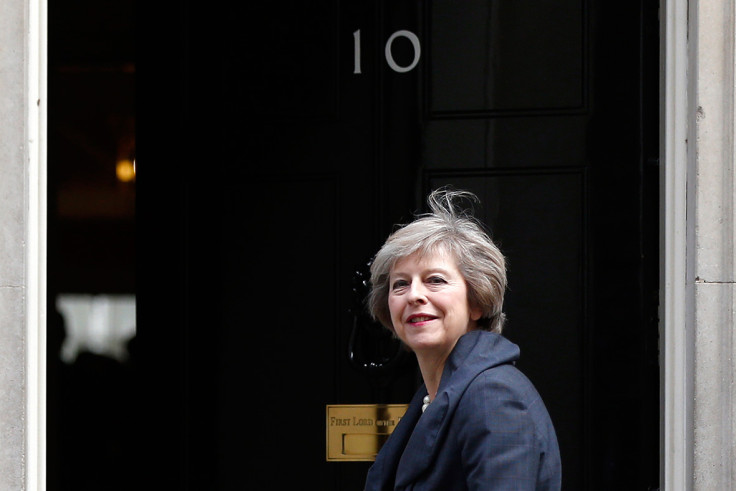How the world's press reacted to Theresa May becoming Britain's second female prime minister
Former Home Secretary's sudden rise to top makes headlines around the world.

Theresa May's rapid rise to prime minister did not only make headlines in the UK, it was big news around the world too.
USA
The New York Times described "stealth candidate" May as an "understated workhorse," contrasting her with the "flamboyant characters" who were among her rivals for the keys to Downing Street.
"She has grown in confidence and stature after six years in the limelight, projecting authority in front of TV cameras that once made her nervous. She is not flashy, does not call attention to herself, and had seemed content with her public role as a loyal Cameron backer."
Tuesday's International NY Times:
— Nick Sutton (@suttonnick) July 11, 2016
Bias in police shootings? Study says no#tomorrowspaperstoday #bbcpapers pic.twitter.com/ywuvRXt82a
Though many compared May with Margaret Thatcher, Britain's first female prime minister, the Washington Post instead drew parallels between May and one of her chief counterparts in forthcoming negotiations on Britain's withdrawal from the European Union, German Chancellor Angela Merkel.
"Both May and Merkel were born in the 1950s, the daughters of church pastors. They both inhabit the centre-right of European politics but are also known for a strong pragmatic streak.
"Both are also considered tough negotiators — skills they'll be putting to use against one another as May seeks a divorce deal with her soon-to-be-former EU counterparts."
Australia and Canada
Newspapers in the Commonwealth countries focussed on the enormous challenges May faces in her new role.
The Sydney Morning Herald describes understated May as the "quiet woman of British politics", noting she is to take power "at a time of immense upheaval for Britain. The nation must not only negotiate its withdrawal from the European Union, but it must also hold itself together amid a renewed clamour from Scotland for independence."
Canada's Globe and Mail described May as "cool-headed and uncompromising but also lacking in international experience and facing the biggest challenge Britain has confronted since the end of the Second World War."
Europe
Germany's liberal daily Die Zeit praised May's emphasis on social justice in her Monday speech and for expressing her support for providing asylum for Syrian refugees last October, contrasting her positions with the "egoism" of Thatcher.
Noting her contradictory support for the Remain campaign and pledges while positioning herself as the next prime minister to secure Brexit, it describes forthcoming EU negotiations as "extremely unpredictable", asking whether May's shifting positions are a result of political calculation or changing conviction.
Der Spiegel meanwhile notes May's sartorial style, remarking that she is known for her 'elegance' and extensive shoe collection.
Theresa #May zieht es ziel- und stilsicher in die 10 Downing Street. https://t.co/LpjNwLsJoA
— SPIEGEL ONLINE (@SPIEGELONLINE) 12 July 2016
In France, Guillaume Roquette, managing editor of Le Figaro praises Britain for giving Europe lessons in democracy in recent weeks, with David Cameron stepping aside after losing the Brexit referendum, and May, though pro-Remain, pledging "Brexit is Brexit" after being chosen as Conservative leader.
Paolo Levi of Italian news agency Ansa hails May's rapid accession as prime minister as good news, because "there is nothing worse than staying in instability."
Russia and China
Gazeta.ru says that though the current mutual distrust between Russia and the United Kingdom will be impossible to reverse, it praises May for cautioning against a further rupture in relations between the countries in the wake of the inquiry into the death of former KGB spy Alexander Litvinenko, stressing the need for cooperation in the battle against terrorism and the need for a solution to the Syria conflict.
"Another Iron Lady". #China's CCTV reporting on Theresa May as she becomes set to be UK Prime Minister pic.twitter.com/Gi9h139yhY
— Kerry Allen 凯丽 (@kerrya11en) July 12, 2016
China's state broadcaster CCTV described May as "another Iron Lady", while GBTimes reports that on social media Chinese students expressed their dismay at May becoming Prime Minister, reportedly nicknaming May "the devil" for her tough policies as Home Secretary restricting the time foreign students can remain in Britain after completing their studies.
© Copyright IBTimes 2024. All rights reserved.







